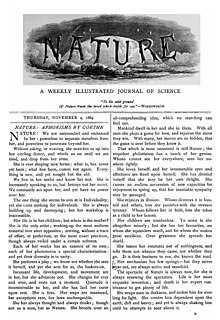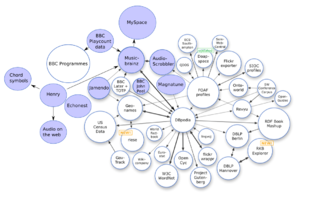Related Research Articles

Peer review is the evaluation of work by one or more people with similar competencies as the producers of the work (peers). It functions as a form of self-regulation by qualified members of a profession within the relevant field. Peer review methods are used to maintain quality standards, improve performance, and provide credibility. In academia, scholarly peer review is often used to determine an academic paper's suitability for publication. Peer review can be categorized by the type of activity and by the field or profession in which the activity occurs, e.g., medical peer review.

In academic publishing, a scientific journal is a periodical publication intended to further the progress of science, usually by reporting new research.

The Office of Management and Budget (OMB) is the largest office within the Executive Office of the President of the United States (EOP). OMB's most prominent function is to produce the president's budget, but it also examines agency programs, policies, and procedures to see whether they comply with the president's policies and coordinates inter-agency policy initiatives.
The American Conference of Governmental Industrial Hygienists (ACGIH) is a professional association of industrial hygienists and practitioners of related professions, with headquarters in Cincinnati, Ohio. One of its goals is to advance worker protection by providing timely, objective, scientific information to occupational and environmental health professionals.
Scientific literature comprises scholarly publications that report original empirical and theoretical work in the natural and social sciences, and within an academic field, often abbreviated as the literature. Academic publishing is the process of contributing the results of one's research into the literature, which often requires a peer-review process.

The Office of Information and Regulatory Affairs is a Division within the Office of Management and Budget (OMB), which in turn, is within the Executive Office of the President. OIRA oversees the implementation of government-wide policies in, and reviews draft regulations under, Executive Order 12866, the Paperwork Reduction Act, and the Information Quality Act.

The Federal Information Security Management Act of 2002 is a United States federal law enacted in 2002 as Title III of the E-Government Act of 2002. The act recognized the importance of information security to the economic and national security interests of the United States. The act requires each federal agency to develop, document, and implement an agency-wide program to provide information security for the information and information systems that support the operations and assets of the agency, including those provided or managed by another agency, contractor, or other source.
An institutional review board (IRB), also known as an independent ethics committee (IEC), ethical review board (ERB), or research ethics board (REB), is a type of committee that applies research ethics by reviewing the methods proposed for research to ensure that they are ethical. Such boards are formally designated to approve, monitor, and review biomedical and behavioral research involving humans. They often conduct some form of risk-benefit analysis in an attempt to determine whether or not research should be conducted. The purpose of the IRB is to assure that appropriate steps are taken to protect the rights and welfare of humans participating as subjects in a research study. Along with developed countries, many developing countries have established national, regional or local Institutional Review Boards in order to safeguard ethical conduct of research concerning both national and international norms, regulations or codes.
The Data Quality Act (DQA) or Information Quality Act (IQA), passed through the United States Congress in Section 515 of the Consolidated Appropriations Act, 2001. Because the Act was a two-sentence rider in a spending bill, it had no name given in the actual legislation. The Government Accountability Office uses the name "Information Quality Act".

The Paperwork Reduction Act of 1980 is a United States federal law enacted in 1980 designed to reduce the total amount of paperwork burden the federal government imposes on private businesses and citizens. The Act imposes procedural requirements on agencies that wish to collect information from the public. It also established the Office of Information and Regulatory Affairs (OIRA) within the Office of Management and Budget (OMB), and authorized this new agency to oversee federal agencies' collection of information from the public and to establish information policies. A substantial amendment, the Paperwork Reduction Act of 1995, confirmed that OIRA's authority extended over not only agency orders to provide information to the government, but also agency orders to provide information to the public.
The American Institute of Biological Sciences (AIBS) is a nonprofit scientific association that is dedicated to advancing biological research and education.
The Information Technology Management Reform Act of 1996 is a United States federal law, designed to improve the way the federal government acquires, uses and disposes information technology (IT). It was passed as Division E of the National Defense Authorization Act for Fiscal Year 1996. Together with the Federal Acquisition Reform Act of 1996, it is known as the Clinger–Cohen Act.

Open Data is the idea that some data should be freely available to everyone to use and republish as they wish, without restrictions from copyright, patents or other mechanisms of control. The goals of the open-source data movement are similar to those of other "open(-source)" movements such as open-source software, hardware, open content, open education, open educational resources, open government, open knowledge, open access, open science, and the open web. Paradoxically, the growth of the open data movement is paralleled by a rise in intellectual property rights. The philosophy behind open data has been long established, but the term "open data" itself is recent, gaining popularity with the rise of the Internet and World Wide Web and, especially, with the launch of open-data government initiatives such as Data.gov, Data.gov.uk and Data.gov.in.
OMB Circular A-130, titled Managing Information as a Strategic Resource, is one of many Government circulars produced by the United States Federal Government to establish policy for executive branch departments and agencies.
NIST Special Publication 800-53 provides a catalog of security and privacy controls for all U.S. federal information systems except those related to national security. It is published by the National Institute of Standards and Technology, which is a non-regulatory agency of the United States Department of Commerce. NIST develops and issues standards, guidelines, and other publications to assist federal agencies in implementing the Federal Information Security Modernization Act of 2014 (FISMA) and to help with managing cost effective programs to protect their information and information systems.
Regulatory science is the scientific and technical foundations upon which regulations are based in various industries – particularly those involving health or safety. Regulatory bodies employing such principles in the US include for example the FDA for food and medical products, the EPA for the environment, and OSHA for work safety.
Scholarly peer review is the process of subjecting an author's scholarly work, research, or ideas to the scrutiny of others who are experts in the same field, before a paper describing this work is published in a journal, conference proceedings or as a book. The peer review helps the publisher decide whether the work should be accepted, considered acceptable with revisions, or rejected.
Metascience is the use of scientific methodology to study science itself. Metascience seeks to increase the quality of scientific research while reducing waste. It is also known as "research on research" and "the science of science", as it uses research methods to study how research is done and where improvements can be made. Metascience concerns itself with all fields of research and has been described as "a bird's eye view of science." In the words of John Ioannidis, "Science is the best thing that has happened to human beings ... but we can do it better."

The Integrated Risk Information System (IRIS) is an environmental assessment program operated by the U.S. Environmental Protection Agency (EPA). Initially, in the 1980s, the program established a database of human health assessments about the impacts of chemicals in the environment. EPA created the database to provide a consistent approach to risk assessment practices across the various environmental laws that the Agency implemented and enforced. The IRIS program is focused on risk assessment, and not risk management.
Executive Order 12,866 in the United States requires benefit-cost analysis for any new regulation that is "economically significant," which is defined as having "an annual effect on the economy of $100 million or more or adversely affect[ing] in a material way the economy, a sector of the economy, productivity, competition, [or] jobs," or creating an inconsistency with other law, or any of several other conditions. The Order established a "regulatory philosophy" and several "principles for regulation," among them requirements to explicitly identify the problem to be addressed, determine whether existing regulations created or contributed to the problem, assess alternatives to direct regulation, and design regulations in the most cost-effective manner. § 1(a) summarizes this regulatory philosophy as follows: